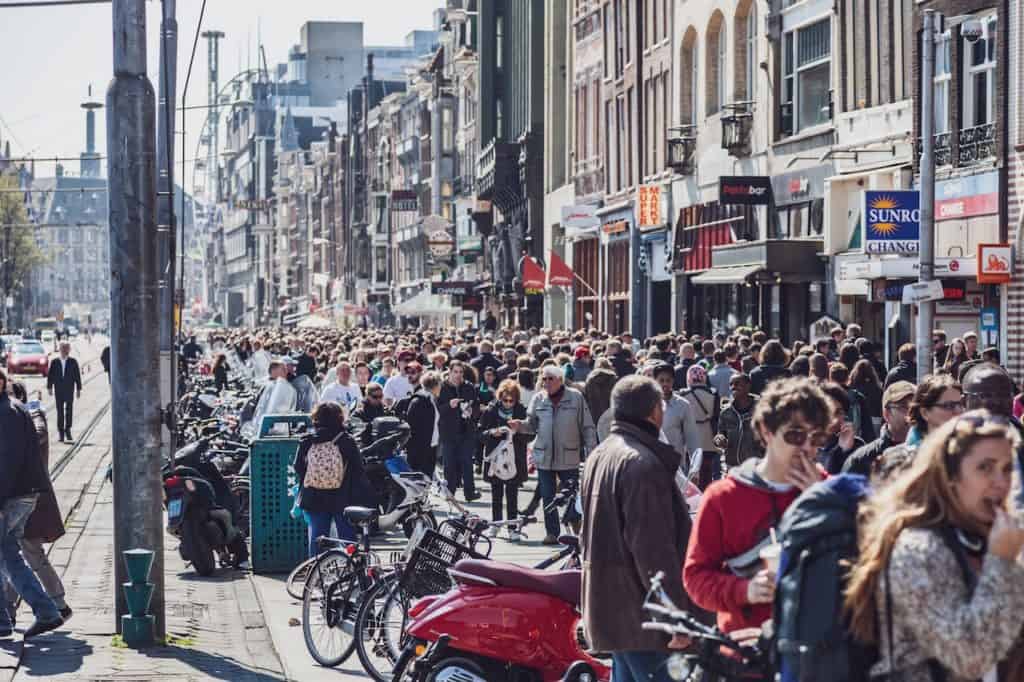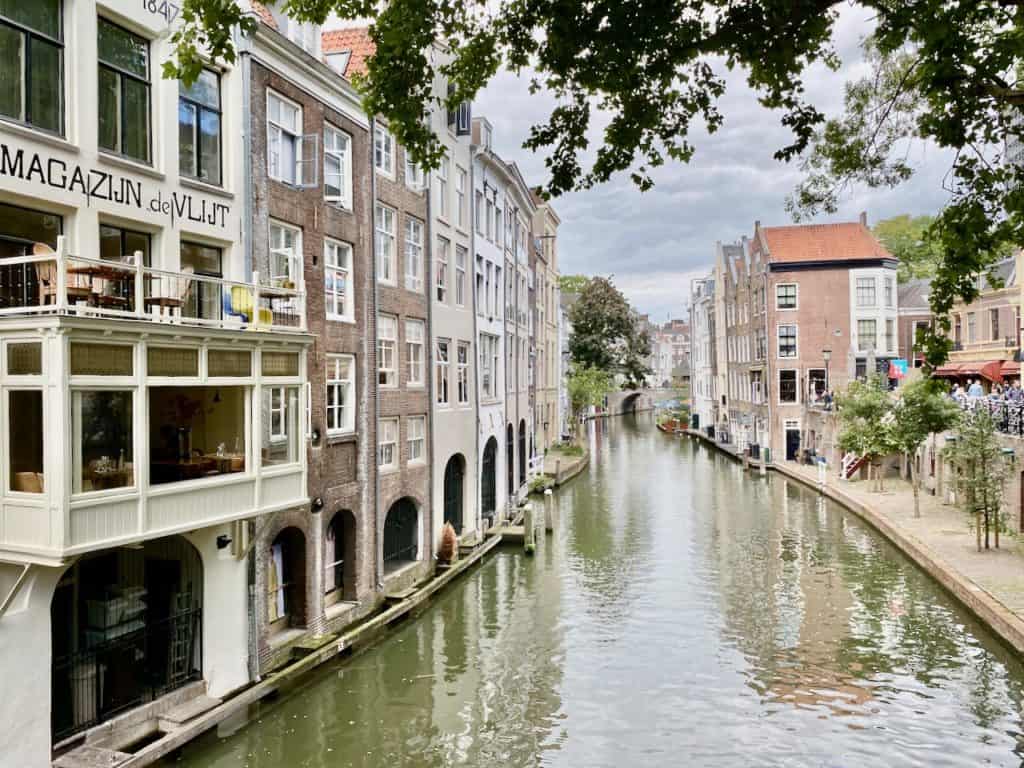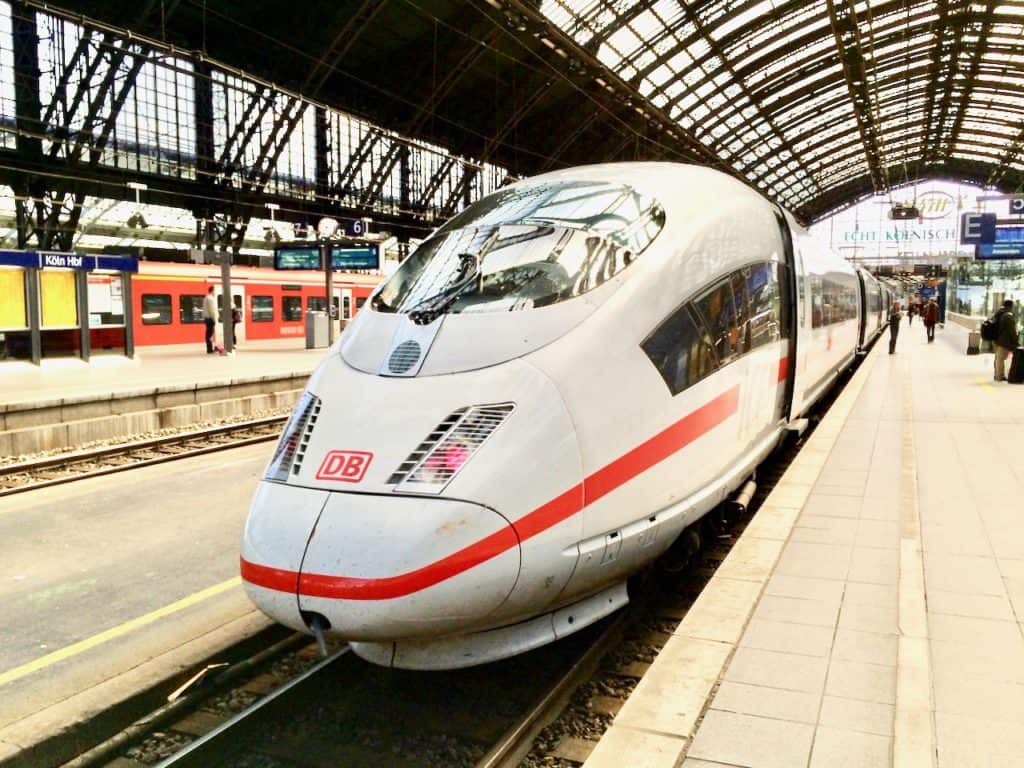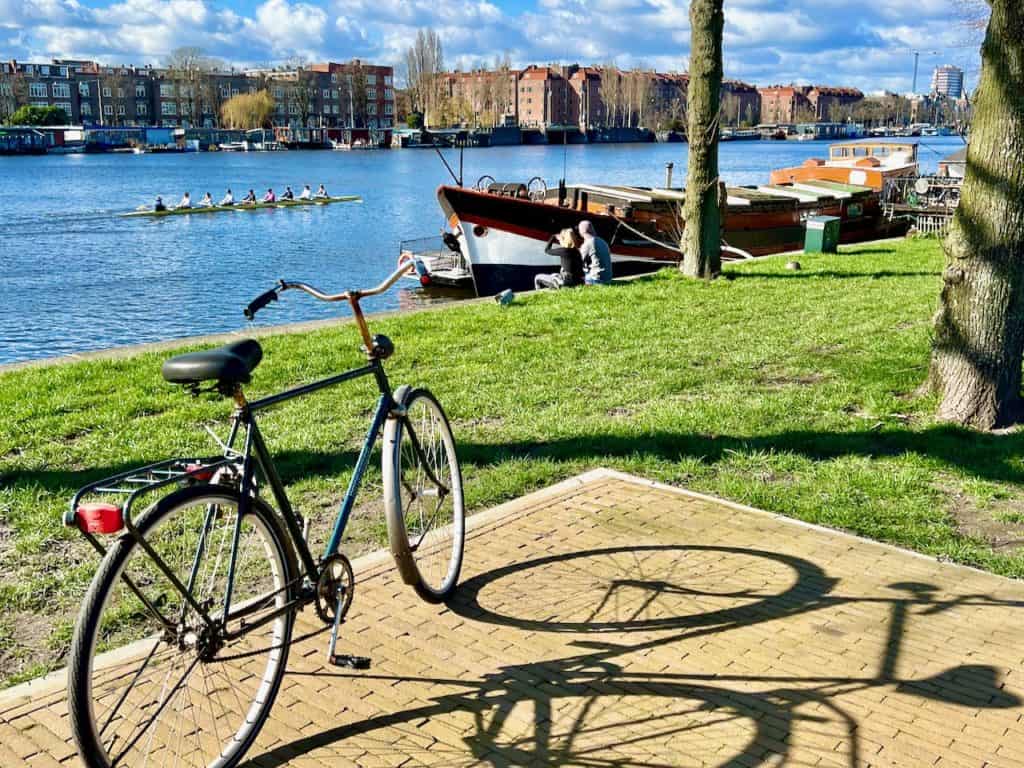How to be a Conscious Tourist
By Alexandra Thorne
Exploring a city is always exciting. From the bustling streets of Manhattan to the romantic boulevards of Paris, each urban centre has its own sense of identity waiting to be discovered. It’s no wonder that urban tourism continues to attract millions of visitors each year, generating an important source of growth and development and creating fresh opportunities for local residents. But let’s face it: from strained infrastructure to overcrowded streets and disruption of local life, the downsides of mass urban tourism are starkly visible in cities around the world. Thankfully, we as travelers can make a difference by taking responsible actions that respect the environment and support the people and culture of the places we visit. Here are practical tips and smart strategies to help you be a conscious and responsible tourist in a city, allowing you to reduce your ecological footprint, while having a more fulfilling experience:

Ways to Travel Responsibly and Reduce Your Footprint
Conscious travel starts with research
If you’re looking to travel more sustainably and reduce your impact, it’s a good idea to start by researching your destination and understanding the challenges it faces. Before making any travel arrangements, take some time to research the destination thoroughly. This includes sustainability issues like waste and pollution, social challenges such as poverty and overcrowding, as well as local customs and cultural norms.
By doing this research, you can make more conscious choices about where to stay, what to pack, and how to get there. Remember: it’s not about sacrificing comfort or adventure, but about finding the right balance between experiencing new cultures and protecting them.

Avoid the crowds
As a responsible traveller, it’s important to be aware of the impact your trip can have on the environment, economy, and culture of your destination. If you’ve done your research and discovered that a city is suffering from overtourism, it’s important to ask yourself if your visit will genuinely benefit the destination. While tourism can bring economic benefits, it can also have negative consequences on the environment and quality of life for residents.
One way to reduce your impact is to travel during off-peak seasons and explore lesser-known areas. This approach not only helps to avoid adding to the crowds but also supports a more equitable distribution of tourism revenue. If you’re considering a trip to the Netherlands, why not visit in the spring or autumn and venture beyond Amsterdam to discover hidden gems like Utrecht or Amersfoort? These charming cities offer picturesque canals, stunning architecture, and an authentic Dutch experience, all without contributing to overtourism.

Travel wisely and reduce your carbon footprint
City trips are often shorter in duration, which can make them more carbon-intensive per day than longer trips. That’s why it’s even more important to make sustainable choices when it comes to transportation.
If possible, opt for low-carbon modes of transport such as trains or buses, which can be a great way to enjoy the journey as well as the destination. For shorter trips, buses can be an affordable and eco-friendly option, while trains provide a more comfortable and scenic journey. Tools like Rome 2 Rio can help you explore your options and find the most sustainable routes between any two destinations.

Sometimes air travel is unavoidable, but there are ways to make more conscious flight choices and reduce your flying footprint. As highlighted by sustainable travel expert Juliet Kinsman in her article on 10 Ways To Lower Your Flying Footprint In 2023, one of the most effective ways is to choose airlines that are committed to reducing their carbon emissions. From Cathay Pacific to KLM, an increasing number of airlines are taking big strides in sustainability with the adoption of more fuel-efficient planes such as the A350 (see here to learn more), offset programs, and the use of biofuels. Choosing direct flights, economy class, and hybrid journeys with train or bus travel for the final leg of your journey are other great ways to minimise your flying footprint.
Before you set off on your city trip, it’s also worth spending some time researching the transport options around the city and consider walking or biking to explore the area. Packing comfortable and sensible shoes and investing in a good map or navigation app can help you find your way around without relying on taxis or ride-sharing services. Read about exploring Berlin by bike and cycling routes in Amsterdam.

Choose a conscious accommodation
Another way to be a more sustainable and conscious city tourist is to consider your choice of accommodation. In particular, it’s worth remembering that large hotel chains have a significant environmental footprint, are often caught greenwashing, and tend to see profits taken out of the host country and sent to the off-shore accounts of shareholders.
In contrast, locally-run independent accommodations, such as small boutique hotels, B&Bs or homestays, can provide a unique and authentic travel experience while also contributing to the local economy.
As a top tip, avoid options that offer large buffet breakfasts or still use single-use toiletries in small plastic bottles. These practices are just the basics of sustainability and signal that the accommodation has not taken sustainability seriously.
Instead, look for accommodations that prioritise environmental responsibility and take steps to reduce their impact. This may include providing locally sourced and organic breakfast options, using refillable dispensers for toiletries, or implementing energy-efficient practices throughout the property.

Some of these accommodations may also go above and beyond for their local community and environment and can be found in many destinations worldwide such as The Good Hotel in London, Conscious Hotel in Amsterdam and Eaton DC in Washington DC.
Housekeeping often changes the bedding and towels daily, which uses a significant amount of water and energy to wash. Leave the ‘Do Not Disturb’ sign on your door. If this doesn’t help, inform the front office manager that housekeeping services are not needed. Additionally, try to avoid using air conditioning or heating and opt for natural ventilation whenever possible to save energy.
Pack with purpose
Based on your research about the city’s challenges, you might want to think about what you should pack to reduce your impact on the environment. For example, if you’re visiting Bangkok, a city known for its delicious street food but plagued by excessive waste and plastic pollution, consider bringing a lightweight food container (Black & Blum have a trendy Stainless Steel Lunch Box that’s perfect for eating zero-waste on-the-go) . Not only will this reduce waste, but it can also spark meaningful conversations with street food vendors and inspire others to take similar actions.
Another easy tip is to bring a reusable water bottle to avoid buying plastic bottles while you’re out and about. Ocean Bottle is an incredible brand that offers small lightweight bottles made from recycled ocean waste that’s perfect for city adventures. Plus, try to eat in wherever possible to avoid creating more waste. It may seem small, but these actions can make a significant difference to a city struggling with plastic pollution.
To reduce your travel footprint further, aim to pack light, especially on flights where extra weight means more fuel consumption and higher carbon emissions. And don’t forget to pack essentials such as a reusable shopping bag or bamboo cutlery to avoid buying unnecessary or single-use items.
Experience responsibly, eat mindfully
As you explore a new city, it’s important to be mindful of how your activities and dining choices impact the local community and environment. To start, seek out sustainable restaurants that prioritise locally-sourced and organic ingredients for a delicious and conscious dining experience. Don’t be afraid to try vegan or vegetarian options that have a lower environmental impact. Read about sustainable and vegan restaurants in Amsterdam.

For a more immersive and sustainable exploration of the city, consider joining a walking tour led by a knowledgeable local guide. This is a great way to discover hidden gems and learn about the city’s culture and history while reducing your carbon footprint.
When looking for more conscious activities, opt for authentic experiences with locally-run operators to gain a deeper understanding of the local community and contribute to its economy. Keep an eye out for sustainable experiences, such as eco-tours, community-based tourism, or cultural preservation projects, which allow you to connect with the destination in a meaningful and responsible way. Read about authentic community experiences in Graz, Austria.
Raise awareness of conscious city travel
By taking these small but impactful steps, we can all work towards creating a more sustainable future for city travel. By researching your destination, avoiding crowds, making sustainable transport choices, choosing a conscious accommodation, and packing with purpose, you can help to ensure that your trip benefits both you and the local community.
If you’re passionate about this topic and are looking to raise awareness of responsible city travel, start out by sharing your own experiences and inspiring others to do the same. One effective way to do this is by documenting your journeys through social media, sharing stories of your booking process and tagging any responsible restaurants, operators, or accommodations in your posts to spread the word to others.
You can also spread awareness by holding meaningful conversations with friends and family about responsible travel and encourage them to make sustainable choices when planning their trips. By leading by example and being vocal about the benefits of responsible city travel, you can help to inspire others to do the same and make a positive impact on the places and communities they visit.
Bio
Lexy is a seasoned writer and marketing consultant who’s passionate about creating captivating brand narratives and editorial content for boutique hotels and restaurants. Her love for travel and meaningful storytelling began after a life-changing trip to Bali in 2015, where she discovered the transformative power of tourism on local communities. Since then, Lexy has worked with prestigious destinations like Playa Viva, Fogo Island and Gangtey Lodge, championing the growth of sustainable and responsible tourism practices around the world. She’s a fierce advocate for the regenerative tourism movement and even wrote the world’s first academic paper on the subject. In her free time, Lexy loves discovering Southeast Asia’s hidden culinary treasures and dreams of visiting Bhutan, India, and Peru.

